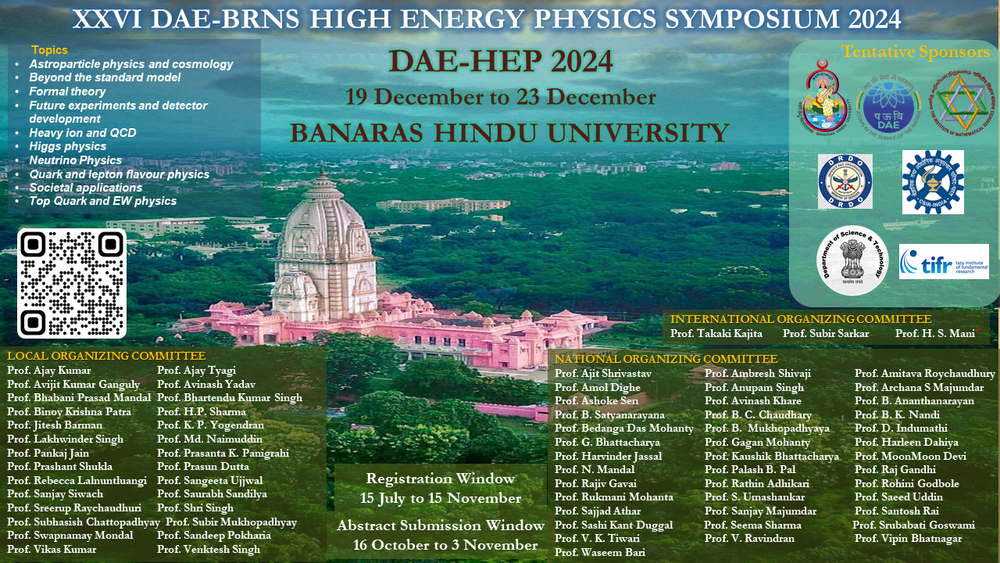Speaker
Description
The effect of noise induced by gravitons has been investigated using a Bose-Einstein condensate. The general complex scalar field theory with a quadratic self-interaction term has been considered in the presence of a gravitational wave. We then vary the action and make use of the principle of least action, and obtain two equations of motion corresponding to the gravitational perturbation and the time-dependent part of the pseudo-Goldstone boson. Coming to an operatorial representation and quantizing the phase space variables via appropriately introduced canonical commutation relations between the canonically conjugate variables corresponding to the graviton and bosonic part of the total system, one obtains a proper quantum gravity setup. We observe that the solution of the time-dependent part of the pseudo-Goldstone boson has infusions from the noise induced by gravitons and the corresponding differential equation of motion is Langevin-like. Using this result, we obtain the quantum gravity modified Fisher information which has been termed as the quantum gravitational Fisher information (QGFI). The inverse square root of the stochastic average of the QGFI gives the minimum uncertainty in the measurement of the gravitational wave amplitude. The minimum uncertainty does not go to infinity as the measurement time approaches zero in a quantum gravity setup rather it has a measurable finite value for gravitons with high squeezing. In order to sum over all possible momentum modes, we next consider a noise term with a suitable Gaussian weight factor which decays over time. We then obtain the lower bound on the final expectation value of the square of the variance in the amplitude parameter. Because of the noise induced by the graviton, there is a minimum value of the measurement time below which it is impossible to detect any gravitational wave using a Bose-Einstein condensate. Finally, we consider interaction between the phonon modes of the Bose-Einstein condensate which results in a decoherence. We observe that the decoherence effect becomes significant for gravitons with minimal squeezing.
| Field of contribution | Phenomenology |
|---|
